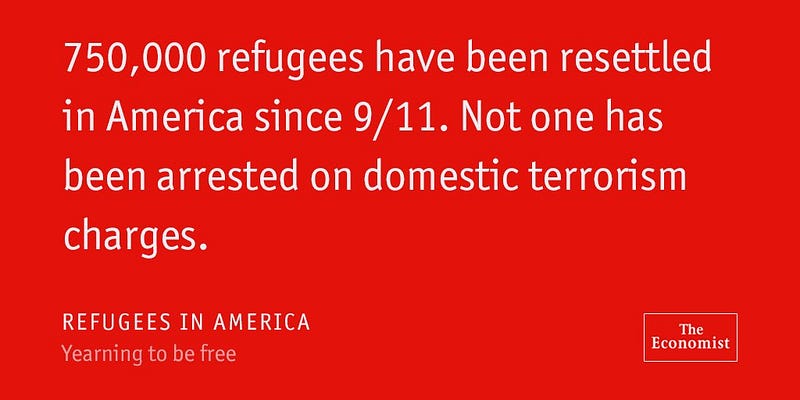Just days
after a series of terrorist attacks in Paris, France left 129 people
dead and over 350 others injured, Syrian refugees have once again become
a topic for debate. It is believed that some of the terrorists gained
access to Europe by using refugee status after a Syrian passport was
found near the body of one of the suicide bombers from the attacks.
However, Serbian police
recently arrested a man carrying a Syrian passport with the exact same
details as the documents found on the bomber in Paris and officials are
almost certain now that both were forged in Turkey.
While
the media both here and abroad have used this information to stoke the
flames of Islamophobia, the president of the European Commission,
Jean-Claude Juncker, has urged political leaders to continue to take in
those fleeing from conflict. At the G20 summit in Turkey Juncker said,
“Those who organized these attacks and those that perpetrated them are
exactly those that the refugees are fleeing and not the opposite.”
According to CNN,
More than 250,000 people have died since the violence broke out in Syria in 2011, and at least 11 million people in the country of 22 million have fled their homes. Syrians are now the world’s largest refugee population, according to the United Nations.
President
Barack Obama took to the podium at the same G20 summit to declare that
the United States would stay committed to our plan of letting in 10,000
Syrian refugees despite governors from Alabama and Michigan announcing
that they would reject refugees. Since his speech the list of states
whose governors have stated that they would refuse to resettle Syrian
refugees has grown to 27. There is no lawful means that grants state
governors the authority to overrule the federal government on matters
such as immigration policy. Nonetheless, governors from Alabama,
Arizona, Arkansas, Florida, Georgia, Idaho, Illinois, Indiana, Iowa,
Kansas, Louisiana, Maine, Massachusetts, Michigan, Mississippi,
Nebraska, Nevada, New Hampshire, New Jersey, New Mexico, North Carolina,
Ohio, Oklahoma, South Carolina, Tennessee, Texas, and Wisconsin have
vowed not to cooperate with the federal government and to make it as
difficult as possible for refugees to be relocated to their individual
states.
Their
main reasoning is that they believe refugees will pose a possible
security threat. But this graphic might help dispute that claim:

Given
their views toward immigrants, particularly those of color, it probably
doesn’t surprise anyone that 26 out of the 27 governors to make
statements refusing refugees are Republican. And because this is America
and some voters still want their leaders to have biblical values it
should not come as a surprise that all 27 governors claim to be
practicing Christians. I don’t have the authority to declare someone to
be an authentic Christian or not. But, I do observe the actions of
followers of Christ, especially in times of crisis because Scripture says, “By their fruit you will recognize them.”
Here is a quick reminder of what the Bible has to say about the treatment of refugees:
- Leviticus 19:33–4: “When a stranger sojourns with you in your land, you shall not do him wrong. You shall treat the stranger who sojourns with you as the native among you, and you shall love him as yourself, for you were refugees in the land of Egypt: I am the Lord your God.
- Exodus 22:21: “You shall not wrong a refugee or oppress him, for you were sojourners in the land of Egypt.”
- Zechariah 7:9–10: “Thus says the Lord of hosts: render true judgments, show kindness and mercy to one another, do not oppress the widow, the fatherless, the refugee, or the poor, and let none of you devise evil against another in your heart.”
- Malachi 3:5: “I will be a swift witness against…those who oppress the hired worker in his wages, the widow and the fatherless, against those who thrust aside the refugee, and do not fear me, says the Lord of hosts.”
- Isaiah 3:4: “Give counsel; grant justice; make your shade like night at the height of noon; shelter the outcasts…”
- Deuteronomy 27:19: “Cursed be anyone who deprives refugees of justice.”
- Ephesians 2:9: “So then you are no longer strangers and aliens, but you are fellow citizens with the saints and members of the household of God.”
- Jeremiah 22:3: “Thus says the Lord: Do justice and righteousness, and deliver from the hand of the oppressor him who has been robbed. And do no wrong or violence to the resident alien, the fatherless, and the widow, nor shed innocent blood in this place.”
- Hebrews 13:2: “Do not neglect to show hospitality to strangers, for thereby some have entertained angels unawares.”
- Matthew 25:35: “For I was hungry and you gave me something to eat, I was thirsty and you gave me something to drink, I was a stranger and you invited me in.”
As
the season of advent quickly approaches I am reminded of the birth
narrative of Jesus and how Mary and Joseph became refugees as they fled
from the murderous King Herod. One would think this obvious parallel
between the life of Jesus and the lives of refugees all over the globe
escaping war, oppression, and inhumane treatment would be enough for all
of our political leaders to show compassion, instead they prove to be
heartless and callous. Imagine if the so-called biblical values of these
political leaders extended beyond policing both how women treat their
bodies and who people choose to marry. Christians should push those
leaders that claim to share the same faith as them to act according to
Scripture and to not allow their states to become safe havens for
racism, Islamophobia and xenophobia.






.png)










